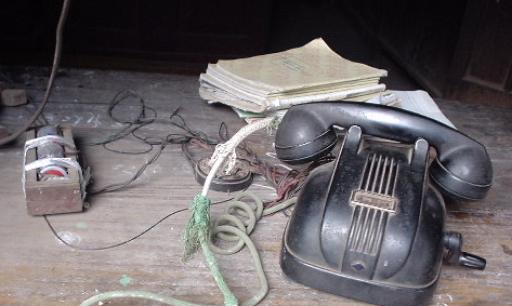
Recently Rated:
Stats
Work interests: science communication
Affiliation/website:
Preferred contact method: Reply to post in blog/forum/group
Preferred contact language(s):
Contact:
Favourite publications:
A research job are one thing, a grant is another -- or maybe not?
Navigating the the world of research funding is one of the job skills that most researchers need. Employers often explicitly look at fund-raising ability and history when seeking new staff.
Here is a possible starting point for the study of grants and funding (more will be added as time permits):
Grantome
"The mission of Grantome is to use data to drive discovery of new knowledge about scientific research grants." (Grantome website, 27th June, 2020)
Tools for many different areas of biological research (genetics, ecology, medicine, and more). See:
Recently I was asked to fill out a poll (at http://www.easypolls.net ) on my use of social networks, by a Yahoo group that is focused on Crop Wild Relatives (CWR). I mainly use ResearchGate, which put me in the "other" category in the options offered.
There are many kinds of online polling service available, and I regard them as an important part of the online ecosystem, for academia as much as they are for commercial or entertainment purposes.
Readers of this blog: Please recommend any polling services you think may be useful for research surveys or other academic purposes.
Vuong (2019) has described a site that aims to improve "the weakest link in the chain of scientific knowledge production", namely the peer review process employed by academic journals.
The site URL is https://scirev.org
Here authors can register to provide their own evaluations of scientific journals they have submitted papers to, so that an author-led rating of journal quality can emerge, based primarily on experiences by authors of the peer-review process.
I recommend reading Vuong's full article, and visiting the SciRev to make your own contribution to assessing the journals you have had experience with.
Q.-H. Vuong (2019) SciRev: an initiative for improving peer review transparancy. European Science Editing 45(1) 20.
Not academic, but possibly of interest to many, is the BBC Learning English website page a
http://bbc.co.uk/learningenglish
At the top of the site, there is a language selection button.
Navigation through the courses and lessons is provided in several languages.
The universe of academic information is constantly expanding, and services to make that information accessible are also expanding. An internet services company (Allconnect, USA) gives good basic advice on how to find reliable information sources: The Student's Internet Research Guide
Google Scholar - a wealth of related tools for literature search and research.
Semantic Scholar - supported by the Allen Institute for AI; an open and free tool for literature search.
Science Gateway - a directory of links and resources for biomedical science and research, compiled by a group of scientists located in Europe and North America.
worldwidescience.org - this portal can be used with many different languages.
Major publishers or publishing networks
Bioline International - A "not-for-profit scholarly publishing cooperative committed to providing open access to quality research (bioscience) journals published in developing countries" (Open Access).
BioOne Complete - A "full-text database of more than 200 leading journals in the biological, ecological, and environmental sciences"
ScienceDirect - Search portal for peer-reviewed journals, articles, book chapters and open access content published by Elsevier. Find articles from over 3,800 journals and more than 37,000 book titles.
Taylor & Francis Online - A commercial publisher in all major subject areas. When viewing a journal page, open access content is indicated by an orange unlock icon.
There are many books on academic writing methods, but not many that look comprehensively at common phrases used in research writing. This University of Manchester (UK) website looks useful:
http://www.phrasebank.manchester.ac.uk/
The site ' aims to provide you with examples of some of the phraseological ‘nuts and bolts’ of writing organised according to the main sections of a research paper or dissertation'... and states that ' the items in the Academic Phrasebank are mostly content neutral and generic in nature'.
Topic headings include: Being Critical, Being Cautious, and many more. Each topic is introduced by an overview of usage for the topic. I highly recommened reading these passages and also the main introduction here: About Academic Phrasebank .
Newspapers are a major resource for many kinds of research. Here are some newspaper directory sites. Please tell us about any other directory sites of interest.
Newspaper archives are especially interesting.
They take us back to the 19th century, more than 100 years ago, when global views of the world were just beginning to become apparent to most people, through the industrialisation of printing technology and paper production. I wonder what is regarded as the first newspaper in the world?
Here is a start:
